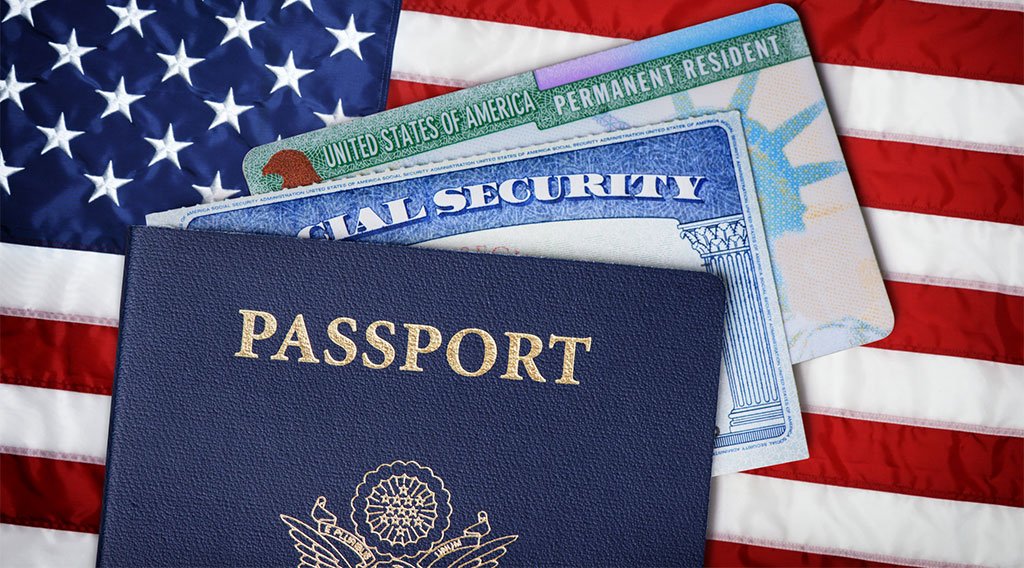The Essential Guide To Applying For EB2 NIW
The United States continues to attract talented individuals from across the globe who seek to contribute their skills, expertise, and innovations to the nation's growth and development. Among the various employment-based immigration options, the EB2 National Interest Waiver (NIW) stands as an appealing choice for professionals, researchers, and those with exceptional abilities. The EB2 NIW provides a pathway to a US Green Card, granting individuals the freedom to pursue their careers and research without the constraints of employer sponsorship.
In this comprehensive guide, we will explore the essential aspects of the EB2 NIW, including the eligibility criteria, documentation requirements, and the benefits it offers. Whether you are a skilled professional, an accomplished researcher, or a dedicated entrepreneur, understanding the EB2 NIW can be your key to unlocking opportunities in the United States.
Understanding The EB2 National Interest Waiver (NIW)
The EB2 National Interest Waiver is a provision within the Employment-Based Second Preference (EB2) category of US immigration. It allows eligible foreign nationals to seek a Green Card without the need for a labor certification and employer sponsorship. The NIW is intended for individuals who possess exceptional abilities or advanced degrees and can demonstrate that their work is in the national interest of the United States.
Eligibility Criteria For The EB2 NIW
To qualify for the EB2 National Interest Waiver, applicants must meet specific criteria that demonstrate their significant contributions and the potential benefits they can bring to the United States. The following elements are typically considered:
Advanced Degree or Exceptional Ability: Applicants must hold an advanced degree (master's degree or higher) or demonstrate exceptional ability in their field. Exceptional ability refers to expertise significantly above that of ordinary professionals in the same field.
National Importance: The applicant's work must be of substantial intrinsic merit and directly benefit the United States. It should have a positive impact on the nation's economy, culture, education, healthcare, environment, or other critical areas.
Influence on the Field: The applicant must demonstrate that their work has the potential to significantly influence their field, as evidenced by achievements, recognition, or contributions.
Documentation Requirements For The EB2 NIW
The success of an EB2 National Interest Waiver petition depends on the strength of the supporting evidence provided. Applicants must compile and present comprehensive documentation that substantiates their eligibility. This may include:
Educational Credentials: Certified copies of academic degrees, diplomas, and certificates supporting the applicant's advanced degree or exceptional ability.
Letters of Recommendation: Strong and detailed letters from experts in the field attesting to the applicant's exceptional abilities and the national importance of their work.
Published Work: Copies of published articles, research papers, patents, or other contributions in the field that showcase the applicant's expertise.
Awards and Recognitions: Evidence of awards, grants, or recognitions received for outstanding achievements.
Influence on the Field: Proof of the applicant's influence on their field, such as citations, references, or invitations to speak at conferences.
Letters of Support: In addition to the applicant's evidence, letters of support from reputable organizations or individuals familiar with the applicant's work can further strengthen the case.
Application Process For The EB2 NIW
The process of applying for the EB2 National Interest Waiver involves several steps:
Form I-140 Petition: The applicant must file Form I-140, Immigrant Petition for Alien Worker, with the United States Citizenship and Immigration Services (USCIS). This form serves as the official request for the EB2 NIW.
Documentation Submission: Along with Form I-140, the applicant must submit the comprehensive supporting documentation that demonstrates their eligibility for the National Interest Waiver.
Priority Date: Upon approval of the I-140 petition, the applicant receives a priority date, establishing their place in the queue for Green Card processing.
Benefits of the EB2 NIW
Securing an EB2 National Interest Waiver offers several advantages for the applicant:
Employer Independence: The EB2 NIW allows individuals to self-petition, eliminating the need for an employer sponsor. This provides greater freedom and flexibility in career choices and research endeavors.
Expedited Processing: The EB2 category is typically current for most countries, resulting in faster processing times compared to other employment-based Green Card categories.
Green Card for Family: Once the EB2 NIW petition is approved, the applicant's spouse and unmarried children under 21 can also apply for Green Cards as dependents.
Work Authorization: While waiting for the Green Card to be processed, applicants under certain visa categories may be eligible for Employment Authorization Documents (EAD), allowing them to work legally in the US.
Receiving A Request For Evidence (RFE)
In some cases, the USCIS may issue a Request for Evidence (RFE) in response to an EB2 NIW petition. An RFE is a formal request for additional information or clarifications regarding the applicant's eligibility. It is essential to respond to an RFE promptly and with strong supporting evidence to increase the chances of a successful outcome.
The EB2 National Interest Waiver presents a valuable opportunity for skilled professionals, researchers, and individuals with exceptional abilities to contribute their talents to the advancement of the United States. By understanding the eligibility criteria, documentation requirements, and benefits of the EB2 NIW, aspiring immigrants can confidently pursue their immigration journey to the US. The EB2 NIW is a testament to the nation's commitment to attracting and retaining exceptional talents that positively impact the country's growth and development.


